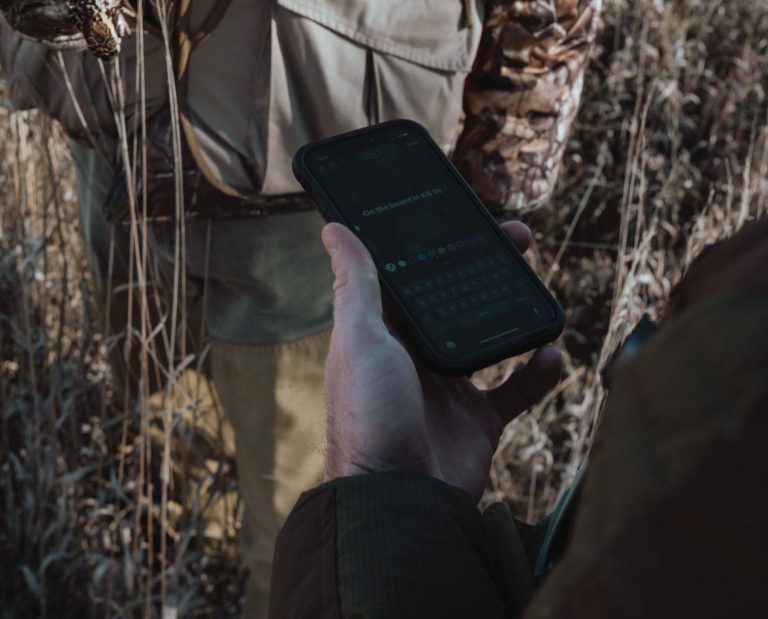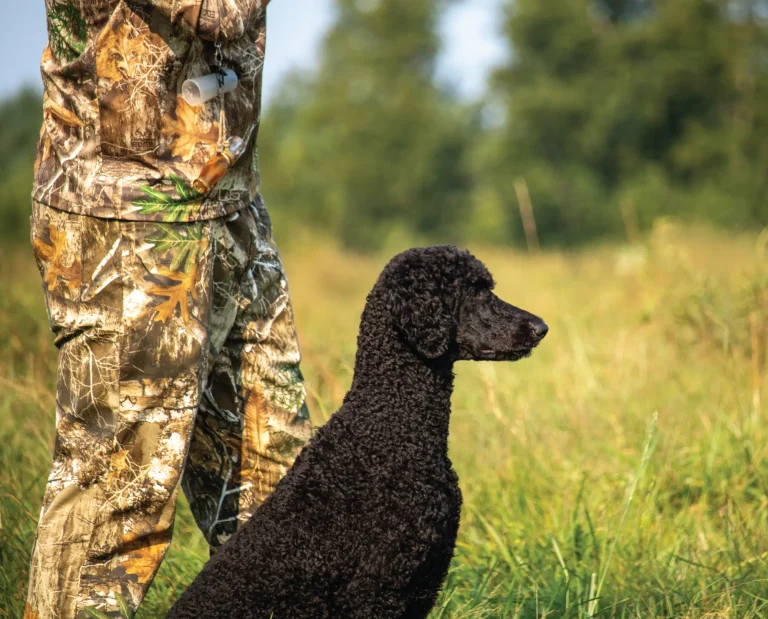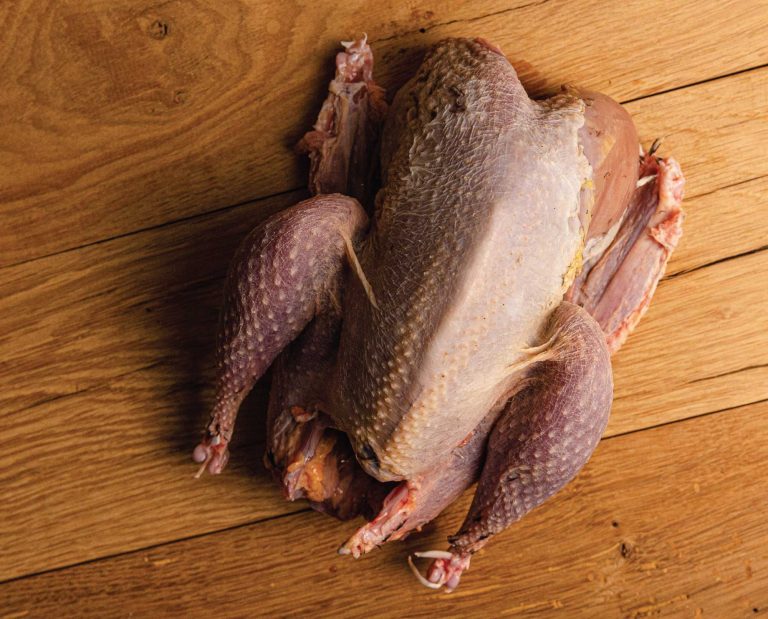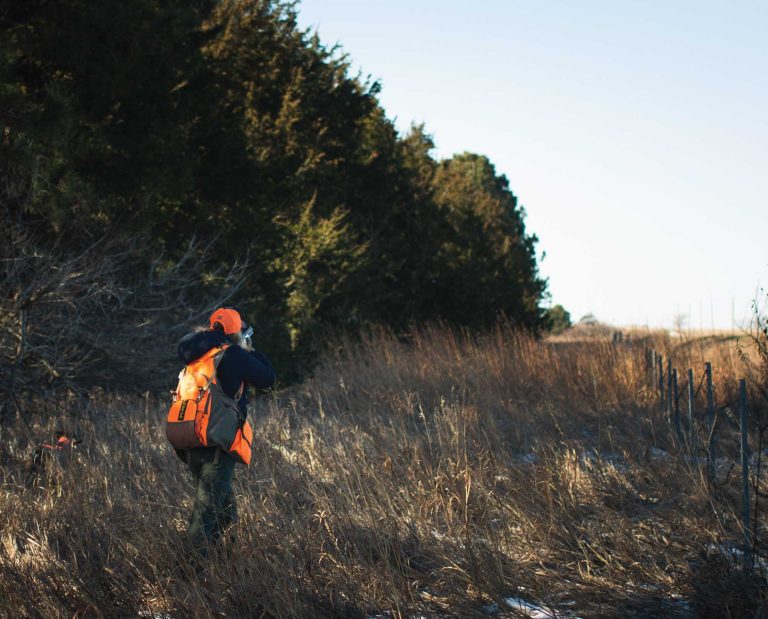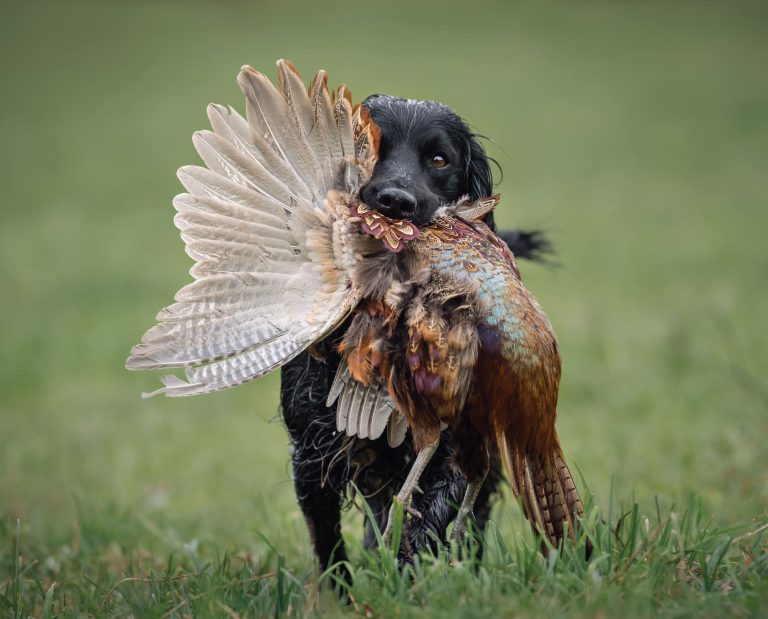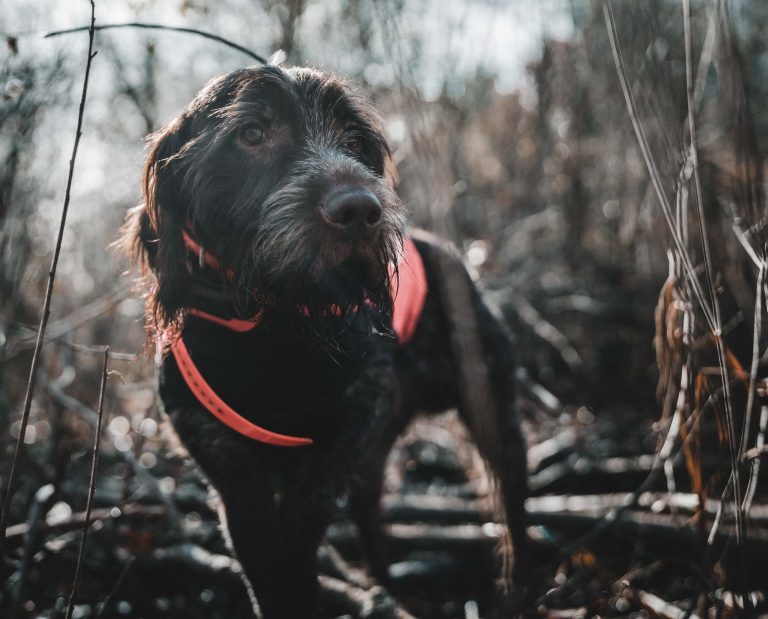Golden Retriever Dog Profile: Abilities, Characteristics, and Training
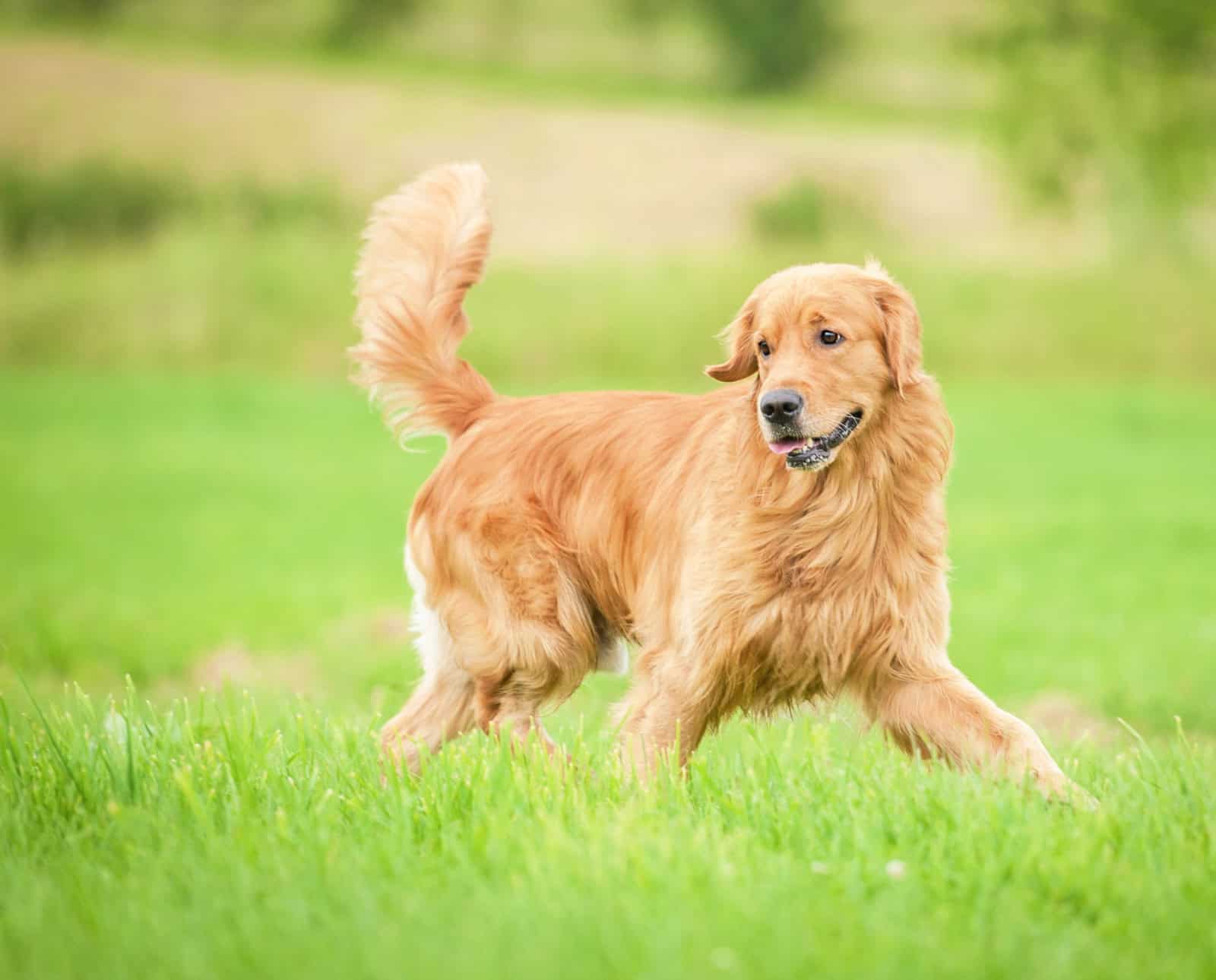
Field goldens are driven, intelligent, and loving, making them fantastic partners in the blind and at home.
The northern Texas horizon glowed a burning ochre as John McCarter cracked his final shot of the morning. The dim light casted reflections on the farm pond he hunted, a glossy prism of oranges and yellows lashed by a crisp October breeze.
Bonnie had just turned three. She’s been at John’s side since she was a puppy, playing, training, hunting, and competing. A year ago, she earned her Master Hunter title. But this might be her biggest moment yet. John rose from his layout blind draped in a tangle of lifeless grass. Then, he took command.
“Here.”
Bonnie latched to John’s side and pirouetted to face the water. She locked in, steady, anticipating direction.
“Bird.”
Bonnie snapped into a sit. Her scarlet coat furled over the stitching of her hunting vest and waved along her burly neck. The hair looked crimped at the tips of her ears. She fixed a permanent eye on the pond as her concentration turned palpable.
“Bonnie.”
Bonnie broke at the ‘B’. She launched, then caught her weight in full stride. Mud sprayed behind her paws like pebbles flung from a truck tire. She hoofed down the bank and dove into the water. Then, the ground disappeared beneath her feet as Bonnie swam like an Olympian chasing her next gold medal. This time, it would be for nine ducks, a nonuple as John later put it. Each one was retrieved blind, and each one brought back to his hand.
“Everything went perfect that morning,” John recalled. His southern twang turned airy and energetic, as if telling the story had him reliving it, “We had held her from picking them up because they just kept coming.”
John McCarter owns Bayou Gundog, a gun dog training operation he founded in 2020, the same year he adopted Bonnie. Since then, John has worked with breeds ranging from Labradors to Pudelpointers, but he specializes in the dogs he admittedly enjoys the most: field goldens.
“I think 99 percent of hunters, when they hear golden retrievers, they think of that fluffy Pinterest golden,” John said, “They go, ‘Those hunt?’ ‘That’s what you’re hunting with?’ It’s not the same.”
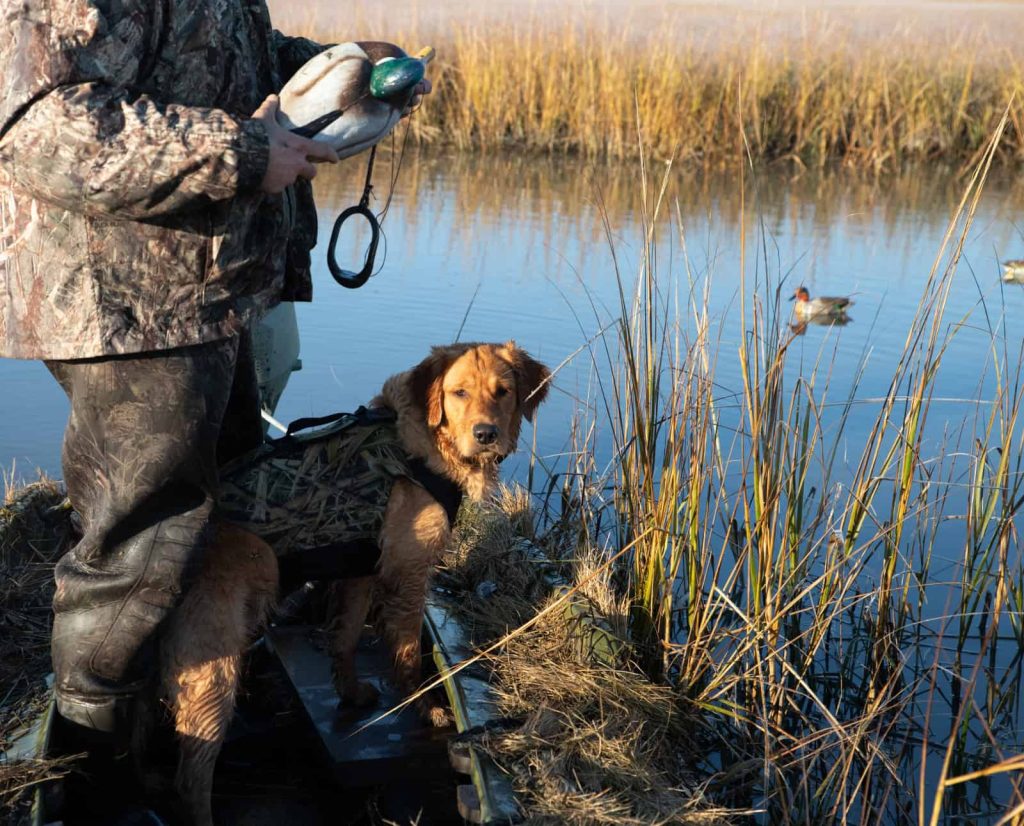
About the Field Golden Retriever
| Characteristics | Details |
| Name | Originally called the Yellow Retriever, it became the Golden Retriever in 1920 |
| Size | Typically 55-75 lbs and 23-25 inches tall |
| Tail | Gorgeous, feathery |
| Coat | Short length, insulated |
| Coat Color | Red to honey-colored |
| Character | Affectionate, devoted, and loving with a strong drive to work |
| Good Choice For | Waterfowl, pheasant |
John’s passion exudes in the way he talks about field goldens. Get him on a roll, and he begins speaking in a Hemingway-esque manner, poetic yet declarative, with no minced words. It’s the same way he delivers commands to Bonnie from a layout blind.
“They’re easy to train. They love it. I think they look good doing it. They’re stylish. They’re beautiful,” he said.
Field goldens typify these traits and more. For instance, field goldens have all the affection of a show golden, but with the sky-watching, duck-loving, cold-water-plunging nature of a lab. Field goldens don’t lumber. They glide like a German Shorthair. Their thick necks and brawny shoulders taper down into sleek frames like that of a cheetah. Unlike a show golden’s flat white coat, field goldens have much shorter, insulated, honey-colored fur, ideal for camouflage in winter sedge. Underneath all that hide and muscle lies the high drive and birdy instinct required to brave freezing temperatures. Top it off with a nose that can snuff out a half-dead green-winged teal hidden in an endless swamp of woven cordgrass, and you’ve engineered the perfect duck dog.
Bonnie won her first Master Hunter title at just shy of two years old. At the time, she was the youngest Master Hunter golden female in three years, John said. She was also John’s first dog to title. John believes he owes Bonnie and her success a great deal of debt for pulling him out of his nursing career and forming him into a full-time gun dog trainer.
“I like good dogs regardless of the breed. And it just so happens that the first good dog I’ve had is a golden,” John said.
John purchased Bonnie as a young pup birthed from a pure line of duck-bred field goldens. He began training her before and after his nursing shifts and became so entrenched in the process that it verged on obsession. To vent his passions and learn from others, he joined his local Hunt Retriever Club and linked up with some of the veterans. Their advice and the networks he made skyrocketed Bonnie’s performance. She won titles and excelled in hunt tests. Her performance drew attention from other Golden Retriever owners who witnessed her triumph. Soon, John had dogs sent to him to train from all over the country. Now, he has trained dogs from as far west as Oregon and as far east as New Jersey.
“My closest client is three hours away,” he added, “Right now, 100 percent of my kennel is goldens”.
John’s kennel introduces dogs to live birds, gunfire, water drills, and duck hunting scenarios. Field goldens excel in these areas, however, creating a good retriever in the backyard doesn’t always translate into the field. To turn a field-bred golden into a true duck dog, you need to know how to train them.
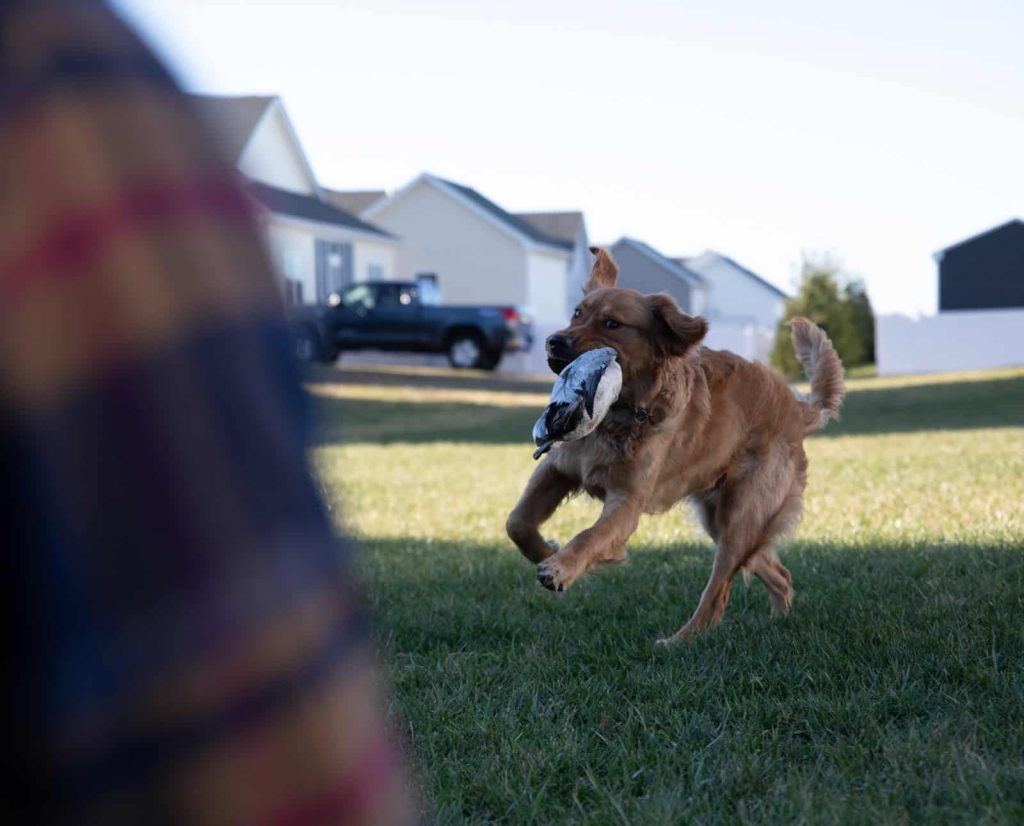
Golden Retriever Training
Writers have a duty to acknowledge any conflicts of interests upfront. So, it’s probably about time I admit my own bias.
Like John, I have my own Bonnie, a field golden named Boone. I adopted Boone at nine weeks old, when he was still covered in velvety puppy fur that felt like the down. We’d play fetch with hot dog-sized bumpers and I’d teach every written command in Tom Dokken’s legendary book, Retriever Training. The book scripted a hell of a strategy, but it wasn’t Tom’s words, or my sloppy skill as a trainer, that made Boone the reliable retriever he is today. The temperament of field goldens, John explained to me, makes them eager to please, which also makes training easy.
“They’re incredibly intelligent. I think that they fly through obedience. They’re known to be in the top two or three most intelligent breeds. That’s an advantage.”
For the most part, Golden Retrievers can be trained just like any other gun dog. It begins with basic obedience. Eventually, sit, stay, and here cascade into blind retrieves and triple marks. Fill in the blanks in between, and you have a decent cookie-cutter gun dog training program.
Fine-tuned programs, however, should focus on the needs of the individual dog. Field goldens, for example, require a tight bond with their owner. It’s a byproduct of their desire to please, and it becomes their primary virtue and vice. Boone can shift gears between salivating duck dog to cuddle up with mom for Netflix in an instant. At times, it leaves me wondering which one he enjoys more. It’s an endearing quality specific to the breed, but just like anyone prone to an affliction of intense love, field goldens leave themselves vulnerable to heartbreak.
“I have one now that’s very sensitive. Instead of forcing him through it, I’m taking time to make sure he’s in a balanced mood,” John said, “In between training, I’m doing fun bumpers, I’m taking him on walks, and I’m spending time to build rapport with him.”
Field golden trainers should take a friendly approach to their sessions. Be the caring little league coach and not the red-cheeked, head-bursting dad in the stands.
“People tend to be a little heavy-handed with other breeds. That heavy-handedness does not go well with field goldens,” John explained, “You just don’t need that same level of pressure that you’re used to giving to that stubborn dog.”
Body language can signal a dogs’ needs. It can vary quite a bit between individuals, and therefore demands continual analysis. In a stepwise approach trimmed with relationship building, John guides each of his field goldens through training, beginning with the basics and building up to gun-dog specific tasks like whistle commands and blind retrieves. John notes that field goldens learn basic commands quickly as puppies, and excel at game-like drills such as t-pattern and three-handed casting.
If John runs into an issue and sensitivity isn’t the problem, it’s probably a mix-up in communication. Sometimes, gundog trainers confuse lack of understanding with disobedience. To avoid this, monitor signs of anxiety and hesitation. If a dog becomes anxious, restart the lesson at the elementary level, or pick it up again tomorrow. Trainer Richard Wolters refers to this as returning back to the ABCs even if your dog knows its XYZs. Vary session length and become comfortable with taking it slow. And if you really want to bring the best out of a field golden, sprinkle in a bit of fun.
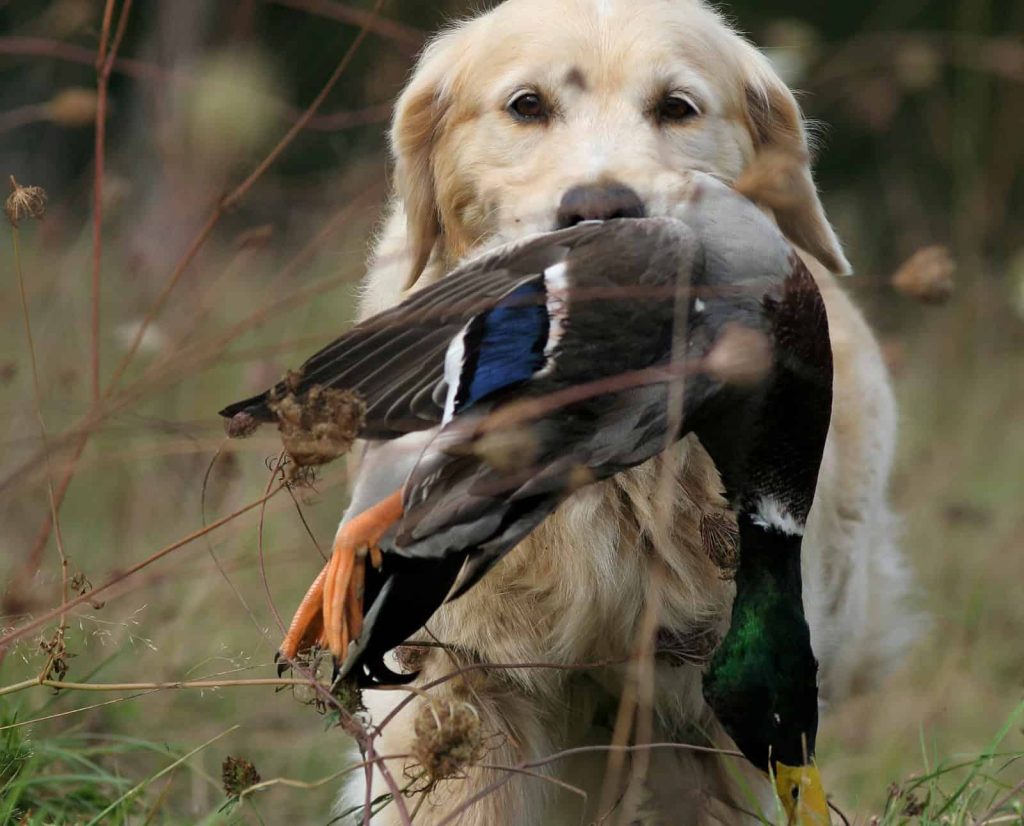
Goldens In the Field
Golden retrievers have such a strong sense of smell that there’s a conspiracy theory going around claiming they have ancient lineage in bloodhound lines. The truth is, however, that when Sir Dudley Marjoribanks bred the first litter of golden retrievers in the 1860s, they were sired by a flat-coated retriever named Nous. The dam was a now-extinct Tweed Water Spaniel named Belle. We don’t have any Belles around today to vet this idea, but most gun dog historians suggest that golden retrievers inherited their strong sense of smell from the Tweed Water Spaniel.
Boone’s inheritance of an unrivaled olfactory system proved itself last season when I took a shot at a drake black duck. I clipped its wing and the bird soared cockeyed through the air, landing like a plane missing its engine in some patch of marsh a hundred yards away. I scoured the thick grass as if I were searching for a tick on Boone’s back while he ran around in concentric circles, tail waving high like a fur-covered windsock. Eventually Boone peeled off on a beeline. Nose to the ground, he busted into a creek, swam across it, galloped through shoulder-deep muck along the bank, and plucked the duck out by its neck from underneath a free-hanging shelf of ice.
This trait pops up in field trials, too. Field goldens consistently earn titles such as Hunting Retriever Champions and Grand Hunting Retriever Champions, awards that demand dogs to rely on their nose, master blind retrieves, and follow handling commands with flawless precision. Judges dock points for dogs who execute without enthusiasm, but that’s hardly an issue for most field goldens.
Their innate ability blended with devotion and unabashed love separates the field golden from all other retriever breeds, and while their skills shine brightest during the winter months, duck hunting season lasts just a fraction of the year. In the remaining nine or so months, field goldens work full-time to be your best friend. John, in his Hemingway style, sums it up best.
“Easy to train. Always happy to do it. Look good doing it. Stylish. Beautiful. They’re great in the house, great in the blind, and great in the kennel,” he said. “Field goldens are always willing to work.”
Golden Retriever Clubs
Golden Retriever Club of America
Mile Hi Golden Retriever Club
Greater Cincinnati Golden Retriever Club
Greater Twin Cities Golden Retriever Club



